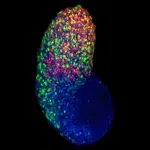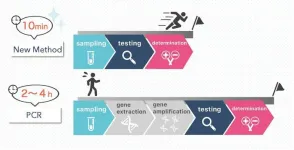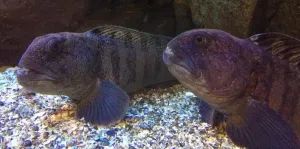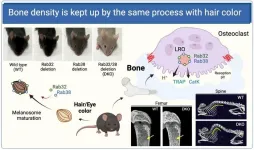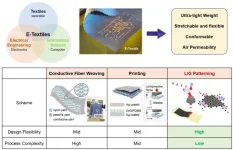(Press-News.org) Thirty-seven research groups will receive €395 million in total to address some of the world’s most formidable research problems spanning a range of scientific disciplines. The funding helps groups of outstanding researchers to pool different skills, knowledge and resources to push the frontiers of our knowledge. The ERC Synergy Grant scheme is part of the EU's research and innovation programme, Horizon Europe.
Iliana Ivanova, Commissioner for Innovation, Research, Culture, Education and Youth, said: “Some scientific questions are too complex to be addressed by researchers working on their own. Challenges such as climate change or ageing span research disciplines and call for diverse methods, skills and resources. This is why the European Research Council awarded today 37 Synergy Grants, empowering small groups of top researchers working across disciplines to tackle serious problems. I wish them success in this important work.”
ERC President Professor Maria Leptin said: “Congratulations to all the winners! The selected projects are shining examples of audacious scientific thinking, and I eagerly await the outcomes of these collaborative endeavours. I am also happy to see some European researchers teaming up with peers across several continents. Together, they are well-equipped to tackle the substantial scientific questions that our world is yearning to find answers to."
Applicants submitted 395 proposals in this call. The 37 winning projects involve 135 researchers who will carry out their projects at 114 universities and research centres in 19 countries across Europe and beyond. The countries where most projects are hosted are: Germany (27), France (12), the Netherlands (7), followed by Spain, Israel, Italy, Sweden and Norway (5 each). Twenty research groups include a researcher working in the UK, Switzerland, US, Australia, Singapore and South Africa.
The statistics and list of successful candidates are provisional. The European Commission and the UK Government have reached an agreement in principle on the association of the UK to Horizon Europe. This means that the UK will be formally associated to Horizon Europe as of 1 January 2024 and that the association would apply only for award procedures implementing 2024 budget and onwards. Entities established in the UK can continue to apply to Horizon Europe grant award procedures funded from budget appropriations of year 2023 but they will not be covered by the association of the UK to Horizon Europe and thus they will not be eligible to receive EU funding. For this and other calls from the 2023 Work Programme, the transitional arrangement applies and the recommended for funding UK-based applicants may receive EU funding if they choose to transfer their proposal to an eligible Host Institution.
ERC Synergy Grants
The Synergy Grant scheme is aimed at a group of two to maximum four Principal Investigators (PIs) working together and bringing different skills and resources to tackle ambitious research problems. One Principal Investigator per research group can be hosted or engaged by an institution outside of the EU or Associated Countries. More information.
About the ERC
The ERC, set up by the European Union in 2007, is the premier European funding organisation for excellent frontier research. It funds creative researchers of any nationality and age, to run projects based across Europe. The ERC offers four core grant schemes: Starting Grants, Consolidator Grants, Advanced Grants and Synergy Grants. With its additional Proof of Concept Grant scheme, the ERC helps grantees to bridge the gap between their pioneering research and early phases of its commercialisation. The ERC is led by an independent governing body, the Scientific Council. Since November 2021, Maria Leptin is the President of the ERC. The overall ERC budget from 2021 to 2027 is more than €16 billion, as part of the Horizon Europe programme, under the responsibility of European Commissioner for Innovation, Research, Culture, Education and Youth, Iliana Ivanova.
END
ERC Synergy Grants back 37 teams to tackle complex scientific questions
2023-10-26
ELSE PRESS RELEASES FROM THIS DATE:
New research reveals alarming privacy and security threats in Smart Homes
2023-10-26
An international team of researchers, led by IMDEA Networks and Northeastern University in collaboration with NYU Tandon School of Engineering, Universidad Carlos III de Madrid, IMDEA Software, University of Calgary, and the International Computer Science Institute, has unveiled groundbreaking findings on the security and privacy challenges posed by the ever-growing prevalence of opaque and technically complex Internet of Things (IoT) devices in smart homes.
Smart Homes: Trusted and Secure Environments?
Smart homes are becoming increasingly interconnected, ...
Machine can quickly produce needed cells for cancer treatment
2023-10-26
PULLMAN, Wash. -- A new tool to rapidly grow cancer-killing white blood cells could advance the availability of immunotherapy, a promising therapy which harnesses the power of the body’s immune response to target cancer cells.
Washington State University researchers have developed a minifridge-sized bioreactor that is able to manufacture the cells, called T cells, at 95% of the maximum growth rate – about 30% faster than current technologies. The researchers report on their work in the journal Biotechnology Progress. They developed it using T cells from cattle, developed by co-author Bill Davis of WSU’s ...
ERC synergy grant: Multidisciplinary research bridges physics and biology at ISTA and in France
2023-10-26
The Institute of Science and Technology Austria (ISTA) receives its second generous ERC Synergy Grant. ISTA Professor Gašper Tkačik is one of three awarded researchers to join forces on unraveling the secrets of gene regulation during mammalian development.
Three research groups from Austria and France team up to crack open the black box of early mammalian development. Now endowed with a prestigious Synergy Grant from the European Research Council (ERC), Gašper Tkačik (ISTA), Thomas Gregor (Institut Pasteur), ...
A new era for accurate, rapid COVID-19 testing
2023-10-26
Osaka, Japan – A rapid, accurate way of testing for COVID-19 infection would be a big step in overcoming the virus’ hold over our society. Now, in an article published in Lab on a Chip, Japanese researchers have developed a promising solution: a novel platform that couples nanopore technology with artificial intelligence.
What is a nanopore? A nanopore is a miniscule hole in a thin substrate, often a silicon wafer. A nanopore might range from several nanometers to several hundred nanometers in diameter — a scale small enough to work with SARS-CoV-2, the virus that causes ...
75% of exclusive hardwood may be illegally harvested
2023-10-26
The tropical wood type ipê is popular for building exclusive wooden decks, and in North America and Europe, the demand for the material has increased sharply. Now, a study from Chalmers University of Technology, Sweden, shows that more than three-quarters of all ipê from the top producing region in Brazil could have been harvested illegally. "The study reveals where in the chain the greatest risks lie. It can be a tool to counteract illegal logging," says Caroline S.S. Franca, PhD student at Chalmers.
Ipê is one of the world's hardest woods. It is therefore particularly suitable for building ...
Farmed wolffish could be on your plate in the future
2023-10-26
In the future, farmed wolffish could start appearing on fish counters. However, a new thesis from the University of Gothenburg shows that this fish, with its delicate, firm flesh, needs somewhat different farming conditions compared to salmon.
The salmon farms of today have created a steady supply of fish in our supermarkets. The nutritional content of salmon, its rapid growth and low cost, have made it a popular fish in many households. But only farming one species can create vulnerabilities in terms of food security. Today Sweden ...
MSU’s ‘Robin Hood’ approach for tracking biodiversity
2023-10-26
MSU has a satellite uplink/LTN TV studio and Comrex line for radio interviews upon request.
THIS STORY IS UNDER EMBARGO UNTIL OCT. 26 AT 12:01 A.M. EDT/05:01 A.M. U.K. TIME.
Images
Highlights:
Researchers at Michigan State University have developed a framework that can help scientists understand trends in biodiversity by using data from well-characterized species to provide insights on data-deficient species.
The framework is published in the Journal of Animal Ecology, which provides a how-to guide for researchers and practitioners to implement.
Roughly one in seven species are classified ...
Bone density is kept up by the same process with hair color
2023-10-26
Osaka, Japan – Bone is maintained via delicate balance between formation and resorption, and its imbalance leads to bone related diseases like osteoporosis rheumatism and periodontitis. In studies published in scientific journals J Biol Chem and Cell Struct Funct, researchers led by Osaka University revealed proteins named Rab32 and Rab38 play pivotal roles in bone resorption in osteoclast, cell specialized in the process. These proteins are also crucial for pigmentation of hair and skins.
Bone ...
Multimodal graphene-based e-textiles for the realization of customized e-textiles have been developed for the first time in the world
2023-10-26
Multimodal* graphene-based electronic textiles (e-textiles) for the realization of customized e-textiles have been developed for the first time in the world.
* Multimodal means the process by which information is exchanged through various sensory interfaces such as visual sensation and auditory sensation.
The joint research team led by Principal Researcher Soongeun Kwon of the Department of Nano Manufacturing Technology of the Korea Institute of Machinery and Materials (President Sang-jin Park, hereinafter referred to as KIMM), an institute under the jurisdiction of the Ministry of Science and ICT, and Professor Young-Jin Kim of the Department of Mechanical Engineering ...
Treating amphetamine use disorder with stimulants: an encouraging new approach
2023-10-26
A new study has found that it may be possible to use stimulants to treat stimulant use disorder. People with amphetamine-type stimulant use disorder who are treated with prescription psychostimulants such as methylphenidate and dextroamphetamine (commonly used to treat attention deficit hyperactivity disorder (ADHD)) may lower both their craving and stimulant use, especially if such treatments are administered at high doses. This study was led by Dr. Jutras-Aswad, a researcher at the CHUM Research Centre and a professor of psychiatry and addictology at Université de ...

